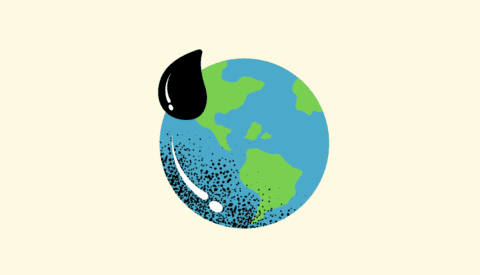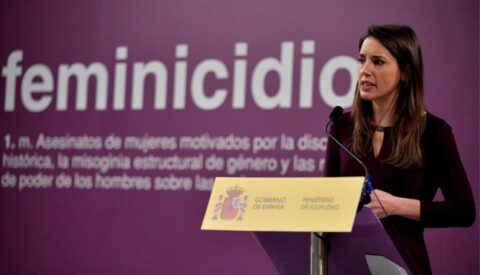Parenthood, Redefined: 11 Hard Questions About Surrogacy
Contributing biologically to a child's creation no longer directly implies parenthood. Surrogacy has shaken up traditional ideas and beliefs about sexuality, reproduction and filiation. The author poses key questions that must be answered to ensure that surrogacy is driven by both science and ethics.
Article
2023

Article
We live in a rapidly changing society, particularly when it comes to interpersonal and familial relationships. Assisted reproductive technology (hereafter ART) has shaken traditional ideas about sexuality, reproduction and filiation.
The act of child creation now goes beyond the sexual encounter between a man and a woman. Not only is reproduction without sex possible, it is also possible that there is no filial relationship between the participants who conceive a baby.
In some cases, those who gestate do not use their own eggs, such as with partner-assisted reproduction (ROPA) for couples who both possess female reproductive organs, often lesbians. In another example, sperm donors renounce their parental rights over the babies conceived.
Not only is reproduction without sex possible, it is also possible that there is no filial relationship between the participants who conceive a baby
To put it another way, contributing biologically to the birth of a child does not directly imply parenthood. The mother is no longer necessarily the one who gives birth, despite what ancient Roman law may have decreed, nor the one who provides the ovum for the gestation. Likewise, the father is no longer unquestionably the one who physically inseminates, or donates the sperm.
No international consensus
Medical advances in the last 40 years have revolutionized biological reproduction. Biological heredity is no longer synonymous with true parenthood. Inevitably, this has had a social and legal impact around kinship. Parenthood is the result of loving and caring for a child, rather than having engaged in a physical act (reproduction), providing genetic material (gametes) or carrying a baby in the womb for nine months (gestation).
If the history of humanity can hardly be understood without the history of technology, the changing history of the family cannot be understood today without knowing the progress of reproductive technologies.
ART opened up a world of possibilities for people who experience infertility for medical reasons (i.e. due to disease, illness or injury) or who experience «structural infertility» as a single individual or same-sex couple wishing to have a child. This world of possibilities has given rise to an important (and exciting) legal, social, political and ethical debate, without any international consensus.
Risk of reproductive tourism
Currently, here in Spain, surrogacy has become a major political issue. To be clear, surrogacy is defined as a person voluntarily — for altruistic or financial reasons — agreeing to gestate a baby and then entrust it to the intended parents after the birth. After prior agreement between the parties, gestation occurs as a result of artificial insemination or with an oocyte provided by the gestating person or by implanting an embryo that may (or may not) come from the intended parents. For people who wish to become single parents through surrogacy, the genetic material may or may not be their own — or may be partly their own and partly from a donor.
Each country approaches surrogacy differently
Each country approaches surrogacy differently. But given the international scope of the phenomenon, the trend is towards regulation: this is the only way to keep things legal, ensure protection for pregnant women and babies, and counter reproductive tourism. On top of the duties and rights of all involved, a legal framework guarantees the respect of surrogacy and ensures that abuses and malpractice are prosecuted.
Questions raised
This has sparked arguments for and against, as well as a myriad of questions. We will conclude this exploration with a list of some of the toughest ethical and practical questions:
1. Is having children a right?
2. What criteria should be made universal to prevent surrogacy from becoming an exploitative process? Can we assure understanding of informed consent, taking mental health, individual vulnerabilities and the risk of poverty into account?
3. Should some kind of emotional or familial relationship be sought between the gestational carrier and the intended parents?
4. Should a person’s freedom and bodily (and personal) autonomy be limited by states, thus preventing them from participating in surrogacy processes?
5. How far can this fit in with feminist claims of «my body, my choice», «my body is mine» until it contradicts the moral values of the Nanny State?
6. Should financial compensation for pregnancies be considered a form of exploitation?
7. Can pregnant people, in a commercial model of surrogacy, be considered patient-workers? Thus, wouldn’t their human rights and labor rights be more protected in this model, similarly to those who participate in clinical trials?
8. If surrogacy is a process only affordable for the privileged, shouldn’t similarly costly procedures such as IVF or cosmetic medicine operations be banned for the same reason?
Individual vs. society
9. Should surrogacy be made available only to individuals or couples experiencing infertility, or also to those experiencing «structural infertility»?
10. Would surrogacy be considered more ethical by the public if the intermediary agencies were exclusively non-profit organizations?
11. Can adoption really be considered as an alternative to surrogacy?
We are facing a debate where (individual) desires, (human) rights and (community/social) duties take on great importance. This debate could be very interesting and useful for our society, as long as we avoid intransigence, moral panic and reductionist arguments.
We have the opportunity to influence scientific progress and growth of bioethical knowledge. It is urgent that the debate should be oriented towards biomedical research, while ensuring the process and participation of all parties remains ethical, as well as civil, in our public debate.
This content is part of a collaboration agreement of ‘WorldCrunch’, with the magazine ‘Ethic’. Read the original at this link.







